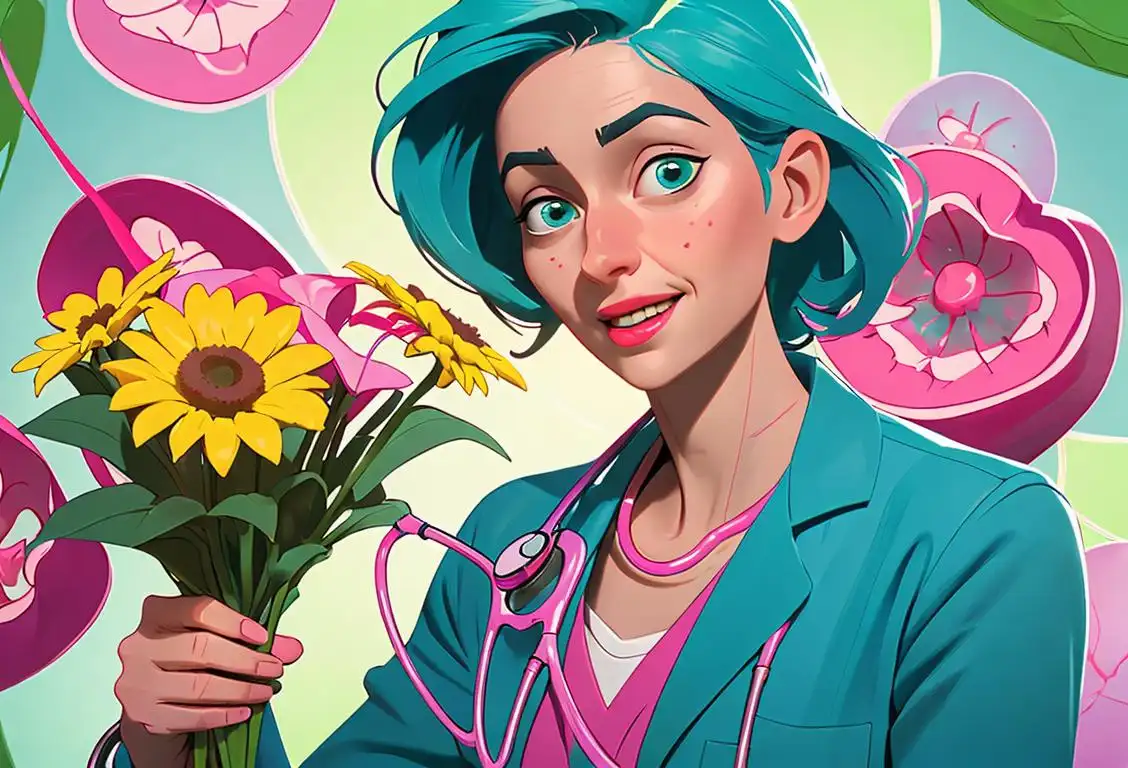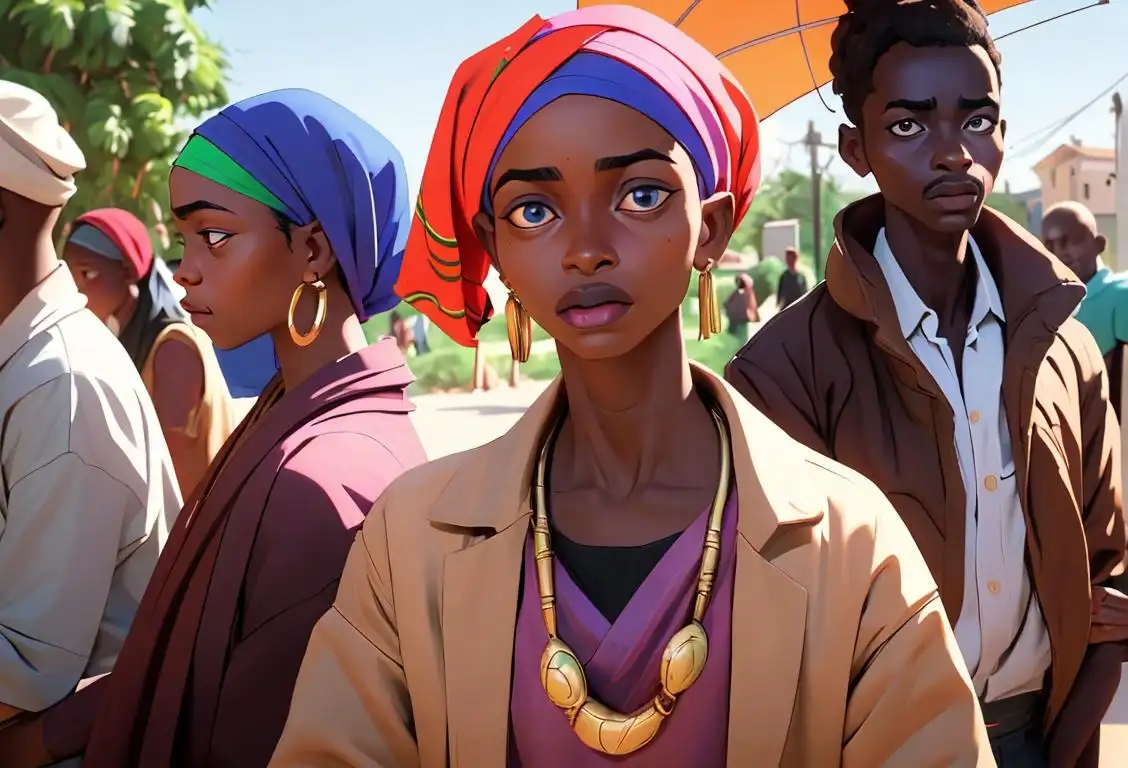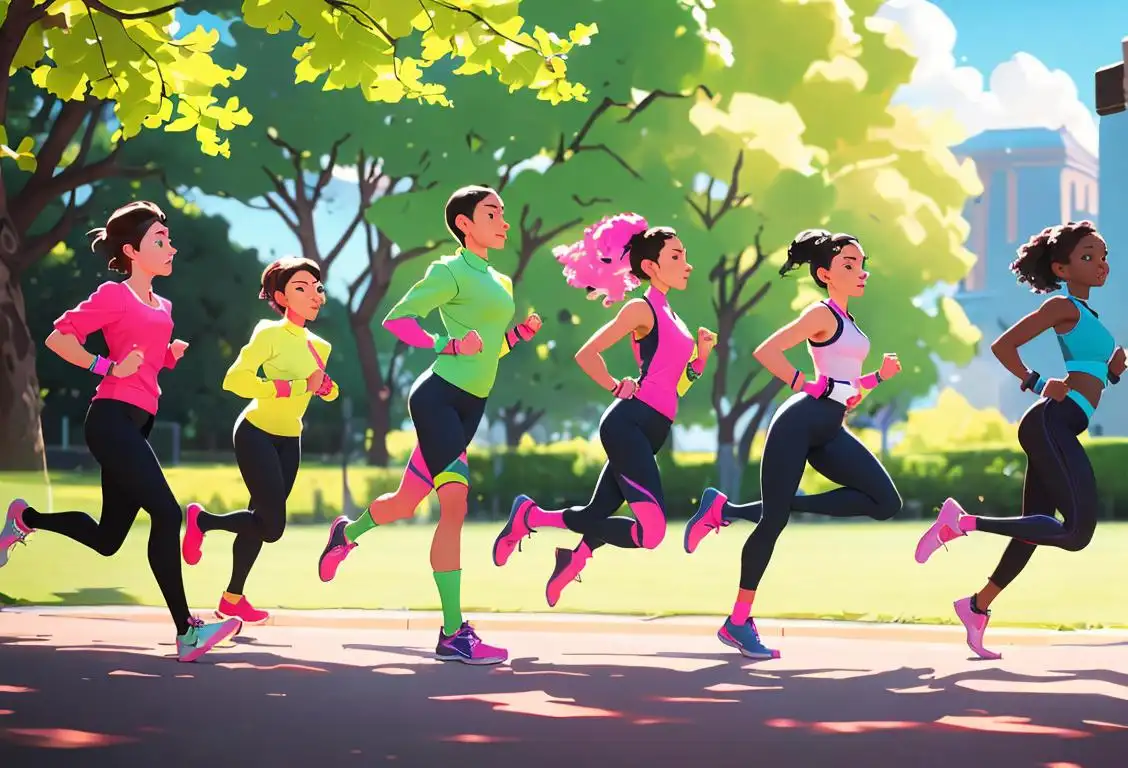National Hiv Awareness Day

Welcome to the wild world of National HIV Awareness Day! Get ready to learn, raise awareness, and get your groove on! This special day shines a spotlight on HIV, an important topic that deserves our attention. So, let's dive in and spread some knowledge!
When is Hiv Awareness Day?
It's national hiv awareness day on the 18th September.
What is National HIV Awareness Day?
Every year on National HIV Awareness Day, we come together to educate and inform people about HIV, to combat stigma and discrimination, and to remember those we've lost to this disease. It's a day to raise awareness, support those living with HIV, and promote HIV prevention and testing.
HIV stands for Human Immunodeficiency Virus, and it affects millions of people around the globe. While significant progress has been made in HIV prevention and treatment, there is still much work to be done. National HIV Awareness Day reminds us to keep fighting, advocating for better healthcare, supporting research, and breaking down barriers.
Did you know? HIV is not transmitted through casual contact. Hugs, handshakes, and high-fives are all safe, no matter how enthusiastic they are!
How to Get Involved
There are plenty of ways you can participate in National HIV Awareness Day. Here are a few ideas:
- Spread the Word: Share informative articles, videos, and resources about HIV awareness on social media using the hashtag #HIVAwarenessDay.
- Get Educated: Take the time to learn more about HIV, its causes, prevention, and treatment options. Empower yourself with knowledge!
- Support Local Organizations: Look for community events, fundraisers, or workshops happening in your area. Attend, volunteer, or donate to support HIV/AIDS organizations that are working tirelessly to make a difference.
- Get Tested: If you haven't been tested for HIV, National HIV Awareness Day is the perfect time to take that step. Visit a local clinic or testing center to get tested and know your status.
- Show Compassion: Be there for your friends, loved ones, or anyone living with HIV. Offer support, and help fight the prejudice and discrimination that still exist.
Let's Stand Together
National HIV Awareness Day is a reminder that we are all in this together. By joining forces, spreading awareness, and supporting those affected by HIV, we can make a difference. Let's replace ignorance with knowledge, fear with empathy, and discrimination with acceptance.
History behind the term 'Hiv Awareness'
1981
First Mention of HIV
In 1981, the term HIV (Human Immunodeficiency Virus) was officially mentioned for the first time in medical literature. Initially, it was identified as a rare form of pneumonia affecting gay men in Los Angeles and New York City. This marked the beginning of the quest to understand the virus and its impact on human health.
1983
Discovery of the Virus
In 1983, two independent research groups led by Dr. Luc Montagnier in France and Dr. Robert Gallo in the United States simultaneously discovered and isolated the virus responsible for AIDS (Acquired Immunodeficiency Syndrome). They named it the Human Immunodeficiency Virus (HIV). This significant scientific breakthrough enabled further research and understanding of the virus's mechanisms.
1984
Public Awareness Campaigns Begin
In 1984, public awareness campaigns about HIV and AIDS started to spread globally. Governments, non-profit organizations, and medical professionals initiated educational programs to inform the public about the virus, its transmission, and prevention methods. These campaigns aimed to reduce stigma, promote safe practices, and emphasize the importance of testing and early diagnosis.
1987
First International AIDS Conference
The year 1987 marked an essential milestone for HIV awareness with the first International AIDS Conference held in Atlanta, Georgia. This conference provided a platform for scientists, healthcare professionals, activists, and policymakers from around the world to share their knowledge and research findings. It played a crucial role in fostering collaboration and advancing global efforts to combat the epidemic.
1996
Introduction of Antiretroviral Therapy
In 1996, the introduction of highly active antiretroviral therapy (HAART) brought a significant shift in HIV treatment. HAART combined multiple antiretroviral drugs, targeting various stages of the HIV lifecycle. This breakthrough led to a dramatic decrease in HIV-related mortality and significantly increased the life expectancy of individuals living with HIV/AIDS.
2000
Establishment of World AIDS Day
Recognizing the global impact of HIV/AIDS, the United Nations General Assembly established World AIDS Day on December 1st, 1988. This annual event serves as an opportunity to raise awareness, remember those who have lost their lives to AIDS-related illnesses, and support those living with the virus. World AIDS Day plays a crucial role in mobilizing communities, governments, and organizations to unite in the fight against HIV/AIDS.
Did you know?
Did you know? HIV is not transmitted through casual contact. Hugs, handshakes, and high-fives are all safe, no matter how enthusiastic they are!Tagged
awareness loved ones community health supportFirst identified
16th September 2015Most mentioned on
18th September 2020Total mentions
9Other days
Hiv Awareness Day
Mast Cell Disease Awareness Day
Eating Disorder Week And I To This Day
African American Hep C Action Day
Healing Vigil Day
African Immigrant And Refugee Hiv And Hep Awareness Day
Breastcancer Action Day
Health And Fitness Day
Transgender Hiv Testing Day
Testing To Day







